Suzi Quatro is on the phone from her Elizabethan Manor home in Essex, UK, and the first thing out of my mouth is: “It’s an honour to be speaking with you”… duh. Understatement.
Suzi’s posters adorned my walls: the skin tight leather jumpsuits, the huge ‘57 Fender bass strapped to her… I mean, c’mon! No brainer… But… the records! THOSE 45s, Can The Can, 48 Crash, Daytona Demon and, of course, Devil Gate Drive…
Quatro seemed to suddenly burst out of a scene in the UK in 1973, having spent years (from around age fourteen onwards) playing shows and growing up in the tough ‘take no prisoners’ environment of Detroit, where she honed a bass playing and singing style that would lead her to success a long, long way from home. And decades later, here she is, releasing her twentieth album. Now, you may be wondering what business Suzi Quatro has being on a site like Sentinel Daily? Aside from our ‘Metal Parameters’ being fairly wide, let me put it to you like this: If you were to look back at Suzi in the seventies you’d see the connection. Ground-breaking. The tough as nails attitude, the fact she considered herself a musician, not a ‘girl musician’ (playing the gender card was never her thing), the leather, the studs, and most importantly, the songs. They may have been tailor-made songs for Suzi written by super writing duo Mike Chapman and Nicky Chinn, but she made you believe they were her own. And songs like the aforementioned 48 Crash and Daytona Demon were blueprints for what was to come in the glam metal scene of the eighties. It’s all there; Screaming vocals, raucous tight guitars, pounding drums -short sharp catchy and delivered with aggression. Actually, pretty punk too. Ask Joan Jett or Gaye Advert.
She was unique. This is not to say Suzi is a heavy metal artist, certainly not, but you have to appreciate the roots she laid down, knowingly or not, that influenced so many since then.
Anyway, enough of my yakkin’…
Hello Suzi… Congratulations on the album-you should be proud of it. “I’m pretty damn proud of it!”
Was this album a result of the lockdown that began last year or were you always planning to record in 2020? “The first album I did with my son (Richard Tuckey) was No Control and I think it
was January last year that the label took up the option on the second album, so Richard and I discussed it because we wanted to do the next one together again as No Control was so great – but he was supposed to be on the road, I was supposed to be on the road and we were discussing when the hell we were gonna be able to get in and write it and we didn’t know when that would happen. Then all of a sudden lockdown came and so I said to Richard ‘well, we’re both grounded, we have a studio in the grounds, a patio for me to work on -let’s write the album’. So, we dove in! We were always gonna do it, but then we had the space to do it and it’s been a very, very creative time for me.”
One thing that caught my attention were the writing credits: ‘Quatro/Tuckey’… just like in the seventies. “Isn’t that weird!” (Laughs)
It’s really cool – seeing the same credit on the classic records with (former husband/guitarist and cowriter) Len Tuckey, and now here they are again, but with your son. “I know -it’s just so strange- it was so funny to write that again”
Did you guys go into the writing with existing material or was it a fresh start for the record like, ‘let’s tackle this from the beginning and write a new album’? “It was pretty much a fresh start. No Control was getting our feet wet -we’d never worked or written together before and we didn’t know what we were doing, but it was a wonderful experience. Then on this one we were just a little bit more focused. My son said he wanted this album to be just as ground breaking as the first one, and he had a real focus and a real vision, and he really lit my Suzi Quatro fire, I guess just by being that much younger and bringing that energy to the table- he’s great to write with and we do challenge each other. I didn’t know he had that much talent, so he surprises me all the time and it’s a real good partnership”.
There are things on this album that remind me of 1975’s Your Mamma Won’t Like Me album and I have to say, when I hear Suzi Quatro with a brass section, it just seems right. “Yes! And y’know, isn’t that funny -I always wanted brass -when I first came over to the UK and started having success, I always wanted a horn section, maybe that’s me coming from Detroit, I dunno, but I always wanted one and I’ve had one for about twenty five years now. It works with my sound, doesn’t it?”
It really does.
Your Mamma Won’t Like Me was such a different record to Can The Can and Quatro yet became many people’s favourite. “I know! Isn’t it funny? A lot of people say that -it was different- it was purposely different! The first time I used horns and the first time I used backing vocalists. It just works -I’m a Detroit girl and it brings out that side of me, you know?”
Though your Chinn/Chapman records were great and have proven to be long lasting I guess that third LP was a chance to show your roots -and I picked that same thing up on The Devil In Me. “I agree with you. When you can go from The Devil In Me to My Heart and Soul you’re covering the whole spectrum. You’re getting a taste of everything that I’ve done, everything I’ve learned, everything that’s in my DNA. I come from a musical family, I was weaned on music from my dad’s era – you can hear the vocal on Love’s Gone Bad for example, I kinda channelled a little Billie Holliday in there. Just showing my influences -and my personal favourite vocal on the album is My Heart and Soul– not my normal way of singing, but boy, I love the way I sing that!”
Betty Who? stands out as a catchy tune- really stays with you. “A lot of people say that. Did you know Cherie Currie (former Runaways singer) guested with me on that one? We’ve become good friends since she appeared in my documentary (Suzi Q, 2019). She’s been very supportive of me through the years”.
Yes, the Documentary! It seemed pretty warts and all- not a happy Hollywood production at all. “I didn’t want that. I actually told Liam (Firmager, the film maker) when I agreed to do the documentary that that was my ground rule. I said: ‘if you want to do an ‘isn’t she wonderful documentary’ you’re talking to the wrong girl. I want my story to be told with the bad and the good. Even though I had editing scissors I decided no matter how awkward something was- if it was true, it stayed in. And I found that my ‘cringe’ moments -the times when I want to crawl out of the screening when I’m watching it with an audience -those honestly are the best moments in the film. I wanted my story told and that’s what we’ve done”.
The album, for something recorded in 2020, has a very natural, analogue, classic sound, obviously with modern production values, but an earthy sound -like a real band. Not something manipulated and cut and pasted together digitally. “Oh My God! I’m not interested in doing that kind of recording! No! No! No! No! Oh my god, it goes against every bone in my body! (We both laugh)… It’s a band! Everybody learns the demo, then everybody adds their two cents worth – and plays together. This is how you get a good recording. Every musician should
have a chance to shine”.
Gear wise, Amps, basses… did you use your original 1957 P Bass in the studio this time around? “I used my reissue P Bass, my Jazz bass and a fretless on a couple of tracks. And a custom bass made by Rios – who’s currently making me a custom Wild One bass. And I’m using Orange amps. I love Orange. They’re great amps.”
Now, as soon as this COVID mess we’re all in is over: touring. I see you already have about two million dates booked. Will we see you in Australia? (Laughing) “Will I get back to Australia? I mean, my bag is packed, I’ll tell you… give me the ticket and I’m there! You can count on it. I don’t know if that’s a threat or a promise!”
The Devil In Me releases on March 26th.


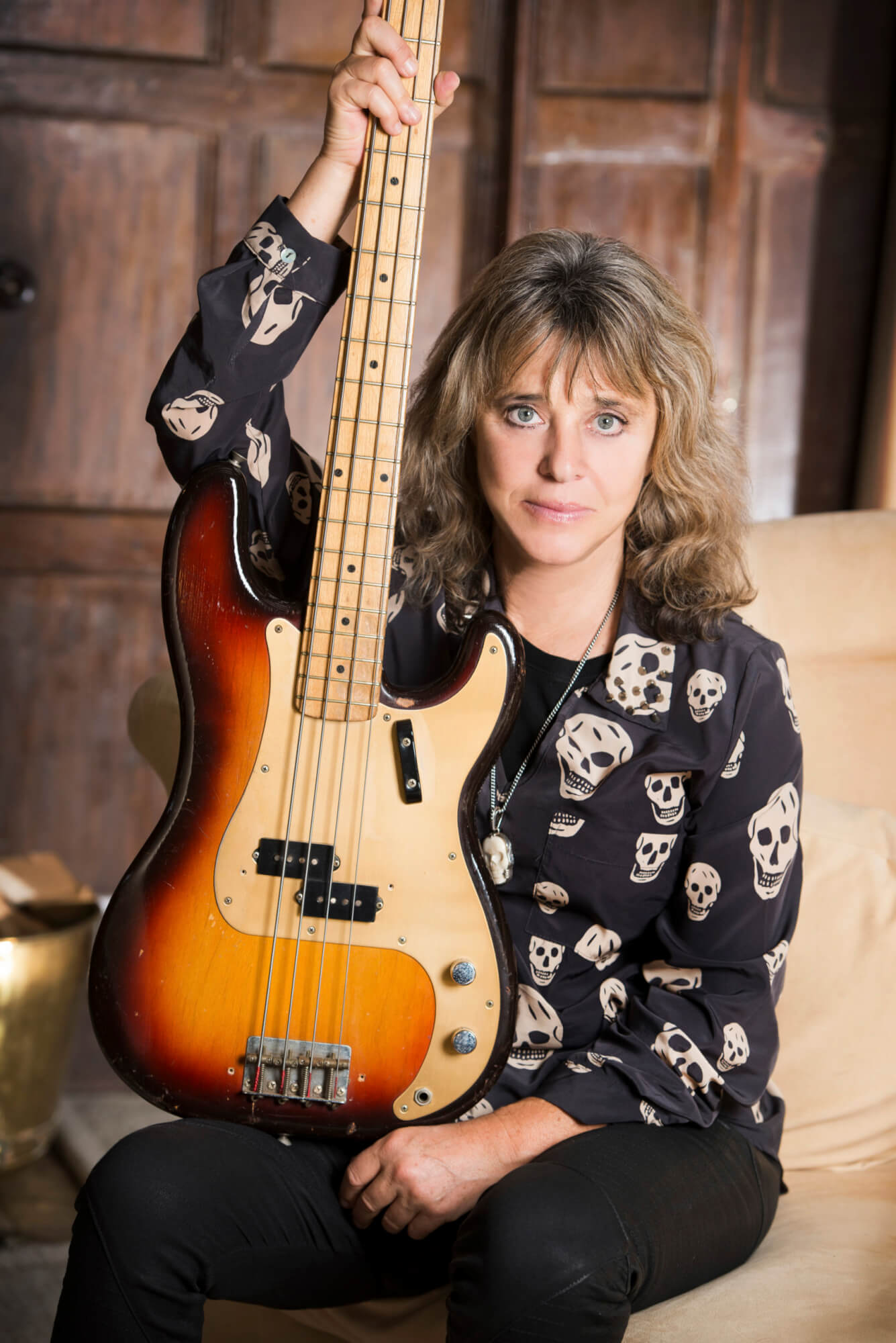

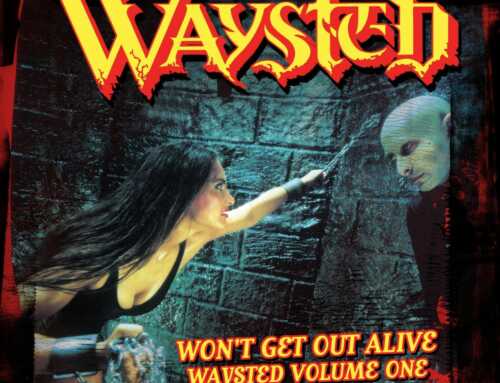
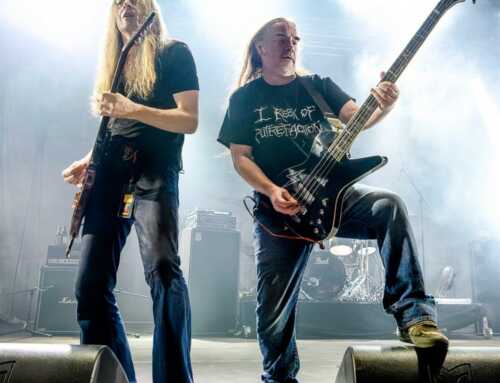
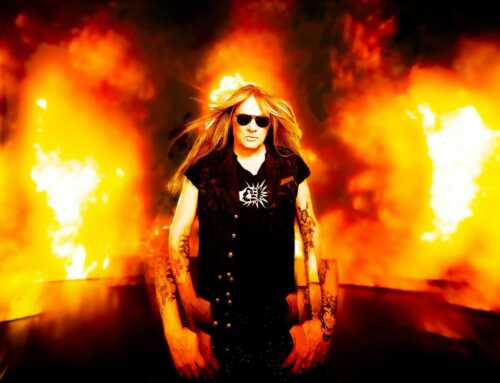
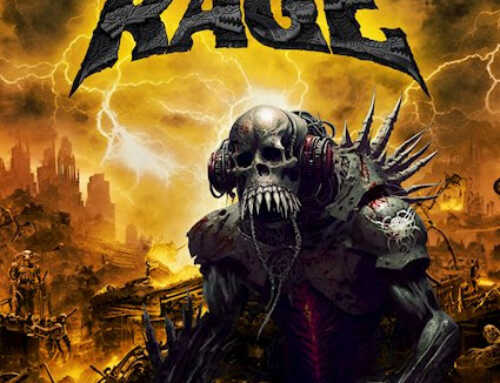
Leave A Comment